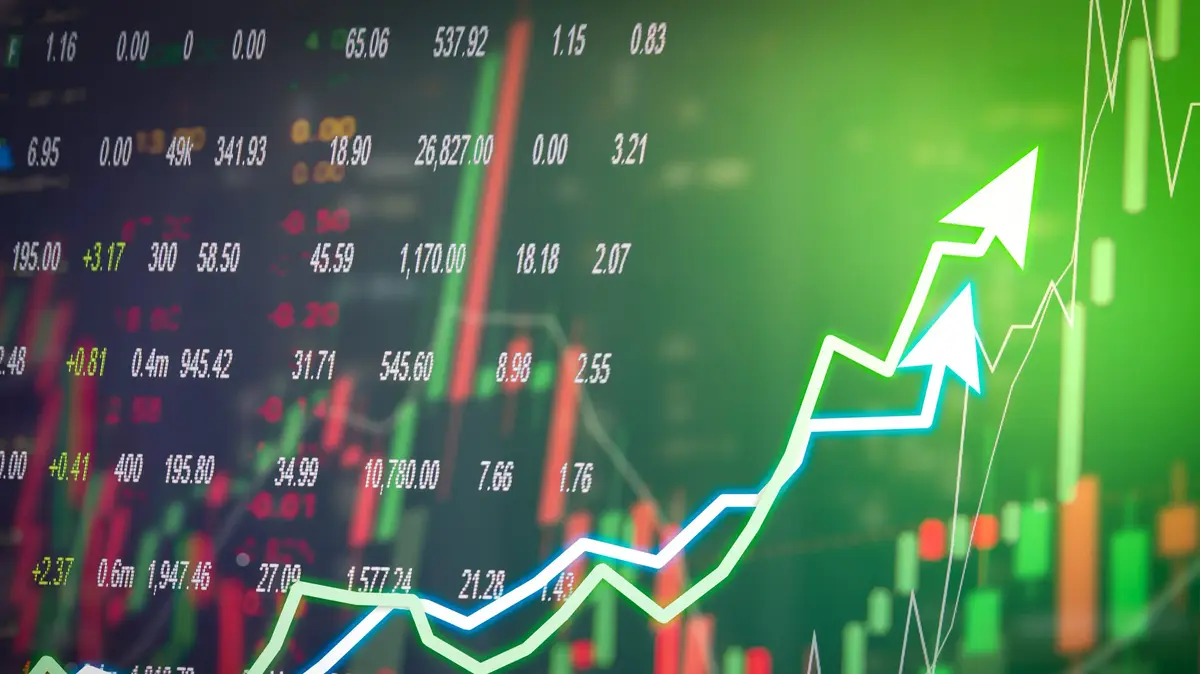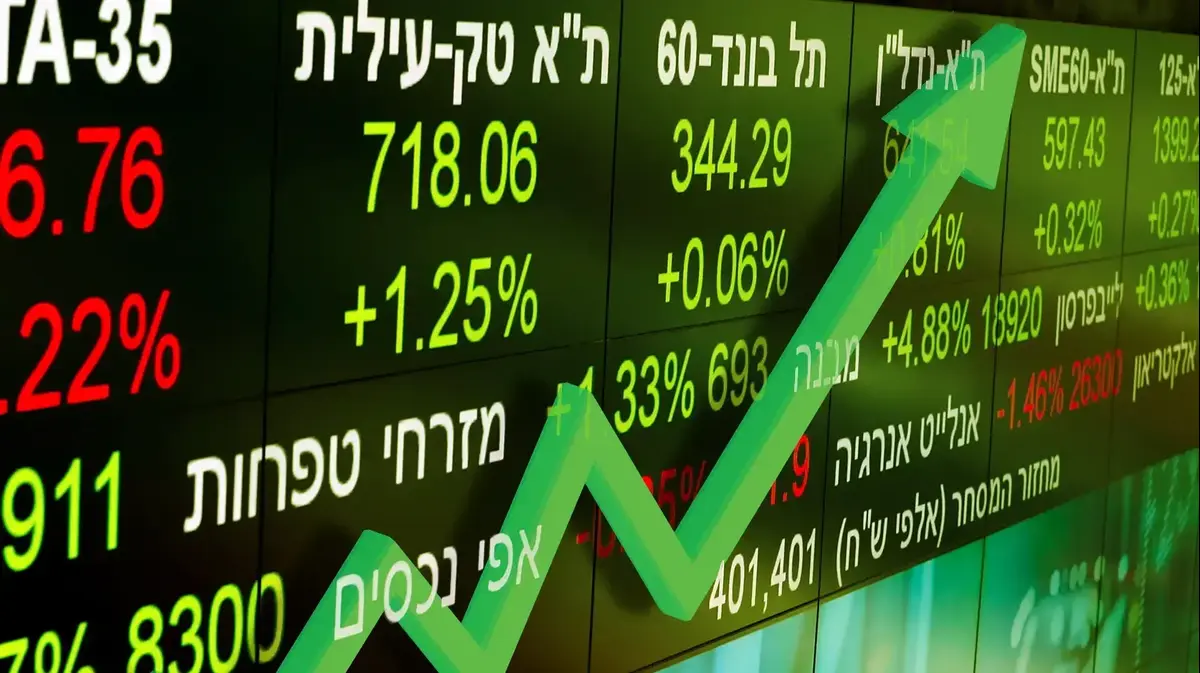The horror scenarios were shattered and the green is rising (Photo: ShutterStock)
The year 2023 opened with a storm as the main stock indices in the world register sharp increases especially after the free dive in the indices in 2022. The dive was mainly due to the massive interest rate increases in the world due to the attempt of the world's central banks to deal with the eruption of the inflationary volcano in the markets.
The main increase in inflation stems from a significant excess of demand at the end of the Corona crisis, substantial disruptions in the supply chains due to the disease and rising energy prices due to the non-stop war between Russia and Ukraine.
The Fed, which tended to believe at the end of 2021 that the bubbling signs of inflation were a temporary and transitory event, began to deal with the suppression of inflation only in February 2022. Then it began to press the gas pedal at a dizzying pace and moved to a restraining policy of monetary tightening and raising interest rates at an accelerated rate up to 4.75% interest rate - the highest level since 2007. The delay in responding took a heavy toll when inflation skyrocketed and set a 40-year record in June 2022.
The capital market did not remain indifferent to the global inflationary spiral, at the same time as the aggressive interest rate hikes of the world's central banks and began to price horror scenarios of a significant slowdown in growth, at the same time as rampant inflation.
The main stock indices fell sharply in 2022 to a decrease of about 33% in the Nasdaq, the S&P500 recorded a decrease of about 19.5%, the German Dax lost 12.4% of its value and the China Potsi plunged by 21.6%.
The delay in responding took a heavy toll.
Fed President Jerome Powell (Photo: GettyImages, Drew Angerer)
The month of January was painted in a bright green color as the world's leading indices closed with impressive gains.
Let's mention the Nasdaq 100 index which erased about a third of the decline of 2022 with an impressive increase of 10.6% and the S&P 500 climbed by 6.2%, the German Dax jumped by 8.6% and the Chinese FTSE returned about half of the decline of 2022 with a jump of 11.7%
The euphoria in the markets, as reflected in the jump in the January indices, stems from the moderation of inflation in the world and with an emphasis on the US when the annual inflation rate dropped from a peak of 9.1% to a level of 6.5%
.
This while in the background, the effect of the moderation of demand as a result of the restraining monetary policy of the Fed.
At the same time, the decrease in commodity inflation is felt, with the prices of energy and raw materials indicating a decrease to an annual rate of approximately 4.7%.
The peak was in March 2022 when commodity inflation indicated an increase of about 14%.
Another headwind for the market comes from a significant improvement in the supply chains that were one of the main factors that, as mentioned, fueled inflation around the world.
The horror scenarios that predicted a contraction in the world economy together with high inflation met with a reality of encouraging data of a soft landing in the US market as inflation falls.
The labor market remains tight and there has even been a decrease in unemployment.
The recession that was seen as an almost certain event in the American market has been pushed to the sidelines for the time being.
The capital market anticipates at least one more increase in the interest rate and the application of an interest rate reduction route towards the end of the year after an expected convergence of inflation to 2% in annual terms.
In Europe, the data also point to a strong economic environment, with expectations of a contraction of the economy contradicting data of only a slowdown.
Namely, in an economy with an unemployment rate that remains low;
A relatively warm winter that allayed heavy fears of a catastrophe in energy prices and resulted in a sharp drop in gas prices;
An increase in disposable income and private consumption.
China, which at once abandoned the 'zero covid' strategy that exacted a heavy economic price, removed the severe corona restrictions and opened the country's borders and the freedom of movement of citizens.
In doing so, it set in motion the faltering wheels of the economy and is expected to show high growth mainly resulting from a significant increase in private consumption and an increase in the rate of production.
China also joins the optimistic feeling and its stock indices react accordingly.
More in Walla!
KKL-Junk encourages climate studies through scholarships for young students
In collaboration with KKL-Junk
Protest against the legal reform.
The "situation" may cloud the investment climate in Israel (Photo: Yanon Yatach)
The Tel Aviv index is left behind
Daniel Giorgi (Photo: Yehats)
The TA 35 index remained far behind in January with a zero return and did not participate in the global green celebration. The dismal figure can be explained mainly by the weakening of economic activity with an emphasis on the field of technology, a field that was particularly affected in the last business cycle. Other reasons are the great sensitivity to political risks and the
fear from the impact of the planned legal reform on the Israeli economy. In recent years, investment in the local stock indices have yielded excess returns over investment against most of the world's leading indices. In our estimation, as the preoccupation with the planned legal reform and the ripples it creates deepens, the risk premium of the local market may increase accordingly and weigh on the investment in the Israeli market.
It should be noted that there are still significant factors that may cloud the stock market in 2023. Factors such as: the fear of an escalation in the war between Russia and Ukraine that may spread to other regions along with the risk of a jump in commodity prices.
A significant awakening of the Chinese economy that will consume resources and increase the prices of goods.
Private consumption based on the tight labor market in the US can fuel demand-side inflation despite the high interest rate. A renewed trade war between the world's largest economy, the US, and China is brewing.
Geopolitical tensions that could lead to war as Iran abandons negotiations and appears to be moving toward accelerating its nuclear program.
The month of January opened with a storm, but the factors that may depress the stock markets in the world cannot be ignored: a long-term high interest rate environment harms the profitability of many companies that rely on debt.
The markets anticipate further moderate interest rate hikes and even a scenario of lowering interest rates towards the end of the year.
Unbridled inflation or a failure of the forecasts embodied in the markets could be an obstacle and return the red color to the stock market.
In our estimation, the level of volatility is expected to be high in 2023.
The author is the manager of the Israeli securities desk, Mercantile Bank
Of money
world money
Tags
Wall Street









